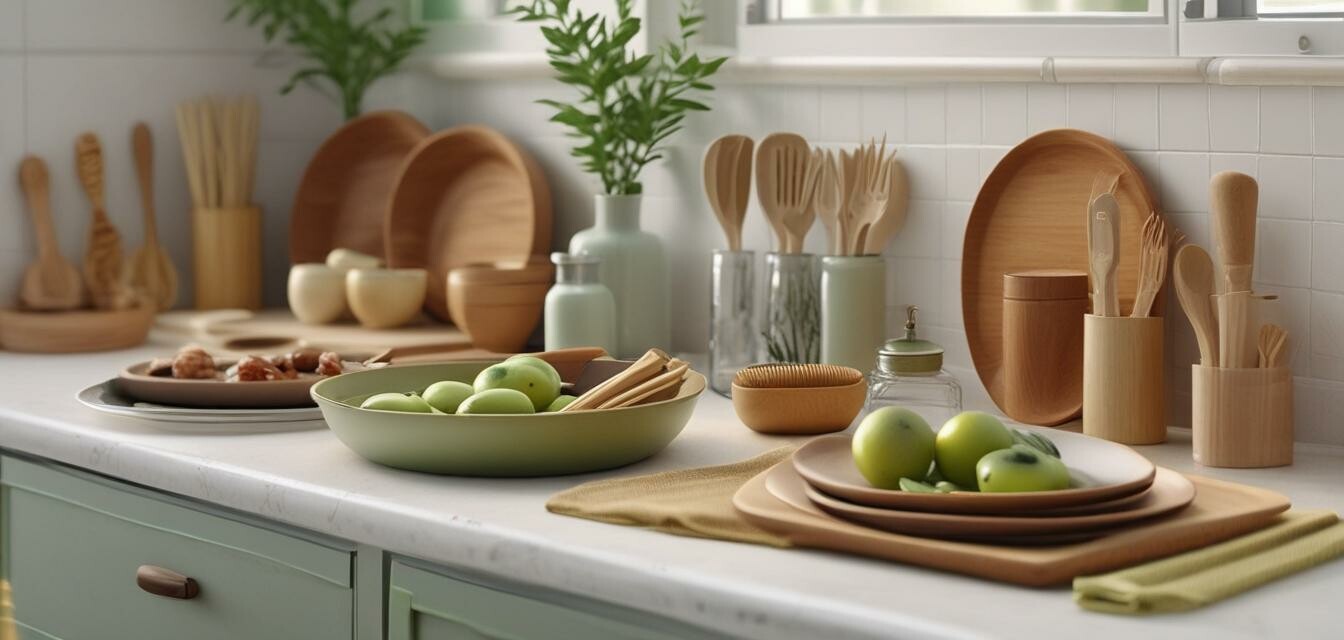
Eco-Conscious Cooking: Tips and Tricks
Key Takeaways
- Utilize sustainable kitchenware made from bamboo and recycled materials.
- Incorporate compostable kitchen tools into your cooking routine.
- Choose energy-efficient appliances to minimize your carbon footprint.
- Store food in eco-friendly storage solutions to reduce waste.
- Opt for reusable produce bags for grocery shopping.
As an eco-conscious food enthusiast, you strive to make choices that positively impact the environment. Cooking sustainably doesn’t merely concern the ingredients you choose, but also the tools and techniques you utilize in your kitchen. Below are some practical tips and tricks for cooking in a sustainable manner without sacrificing flavor or convenience.
1. Embrace sustainable kitchenware
Investing in eco-friendly kitchenware not only enhances your cooking experience but also promotes sustainability. Here are some essential types of kitchenware you should consider:
| Type of Kitchenware | Materials | Benefits |
|---|---|---|
| Bamboo Kitchenware | Bamboo | Durable, biodegradable, and naturally antibacterial. |
| Compostable Kitchen Tools | Bioplastics | Break down naturally, reducing landfill waste. |
| Recycled Glass Dinnerware | Recycled glass | Reduces landfill use and uses less energy during production. |
2. Switch to energy-efficient appliances
Energy-efficient appliances consume less power and can significantly reduce your energy bill. Look for Energy Star-rated products when shopping for new kitchen gadgets.
Consider the following types of appliances:
- Slow cookers
- Induction cooktops
- Energy-efficient microwaves
3. Optimize your cooking habits
Use leftovers creatively
Making use of leftovers not only prevents food waste but can also lead to exciting new meals. Here are a few ideas:
- Use leftover roasted vegetables in a frittata.
- Add stale bread to soups or salads.
- Transform leftover rice into fried rice dishes.
Minimize water waste
Being mindful of water usage is an essential aspect of sustainable cooking. Here are some tips:
- Wash vegetables in a bowl of water instead of under running water.
- Reuse pasta or vegetable cooking water for soups and sauces.
- Always turn off the faucet while you wash dishes.
4. Invest in eco-friendly food storage
Proper food storage extends freshness and minimizes waste. Choose from the following eco-friendly solutions:
| Storage Type | Material | Why It's Eco-Friendly |
|---|---|---|
| Glass Containers | Recycled glass | Durable, reusable, and recyclable. |
| Beeswax Wraps | Beeswax | Biodegradable and reusable alternative to plastic wrap. |
| Reusable Silicone Bags | Silicone | Durable and reduces single-use plastic waste. |
5. Shop smart with reusable produce bags
Making the switch to reusable produce bags helps reduce plastic bag waste when shopping. These bags can be made from cotton, mesh, or recycled materials, making them a sustainable choice for transporting fruits and vegetables.
6. Explore local and seasonal ingredients
Buying local and seasonal ingredients not only supports your community but also reduces the environmental impact associated with transportation. Here’s why this is important:
- Fresher ingredients often taste better.
- Reduces carbon footprint due to less transportation.
- Supports sustainable farming practices.
Conclusion
Adopting eco-conscious cooking practices can significantly reduce your environmental impact and contribute to a more sustainable planet. By making conscious choices about the kitchenware you use, the appliances you invest in, and your cooking habits, you can create a kitchen that reflects your values. For more insights and detailed guides on eco-friendly kitchen products, you can explore our Buying Guides or check out our favorite Bamboo Kitchenware options.
Pros
- Reduces environmental footprint.
- Promotes health and well-being through fresh ingredients.
- Supports sustainable local economies.
Cons
- Sometimes higher upfront costs for eco-friendly products.
- Requires effort and planning to avoid waste.


